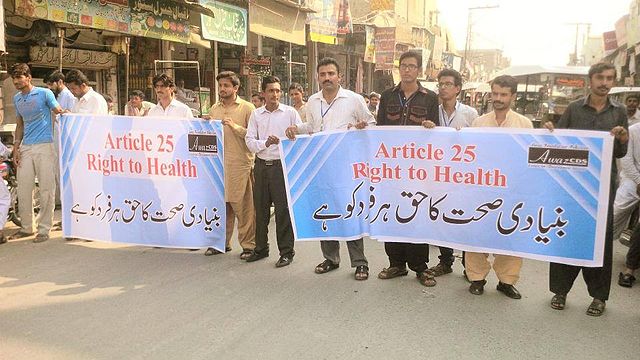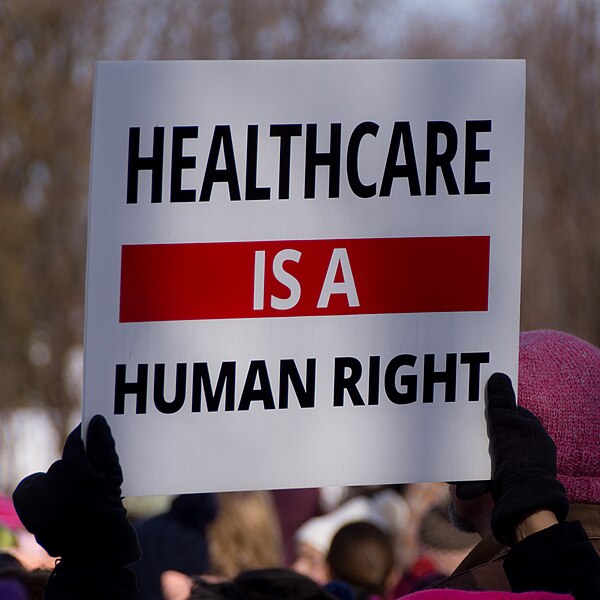The right to health is the economic, social, and cultural right to a universal minimum standard of health to which all individuals are entitled. The concept of a right to health has been enumerated in international agreements which include the Universal Declaration of Human Rights, International Covenant on Economic, Social and Cultural Rights, and the Convention on the Rights of Persons with Disabilities. There is debate on the interpretation and application of the right to health due to considerations such as how health is defined, what minimum entitlements are encompassed in a right to health, and which institutions are responsible for ensuring a right to health.
Protestors rally for the right to health in Pakistan
Romanian activists create a "25" using umbrellas, a reference to Article 25 of the United Nations' Universal Declaration of Human Rights.
Lisa Murkowski at 2019 Alaska State of Reform Health Policy Conference
"Healthcare is a human right" sign
Universal Declaration of Human Rights
The Universal Declaration of Human Rights (UDHR) is an international document adopted by the United Nations General Assembly that enshrines the rights and freedoms of all human beings. Drafted by a UN committee chaired by Eleanor Roosevelt, it was accepted by the General Assembly as Resolution 217 during its third session on 10 December 1948 at the Palais de Chaillot in Paris, France. Of the 58 members of the United Nations at the time, 48 voted in favour, none against, eight abstained, and two did not vote.
Eleanor Roosevelt holding the English language version of the Universal Declaration of Human Rights in November 1949
The human rights adopted by the United Nations General Assembly of its 183rd meeting, held in Paris on 10 December 1948
Former-Foreign Office Minister Baroness Anelay speaking at the Commemorating Human Rights Day event in London, 8 December 2016.







